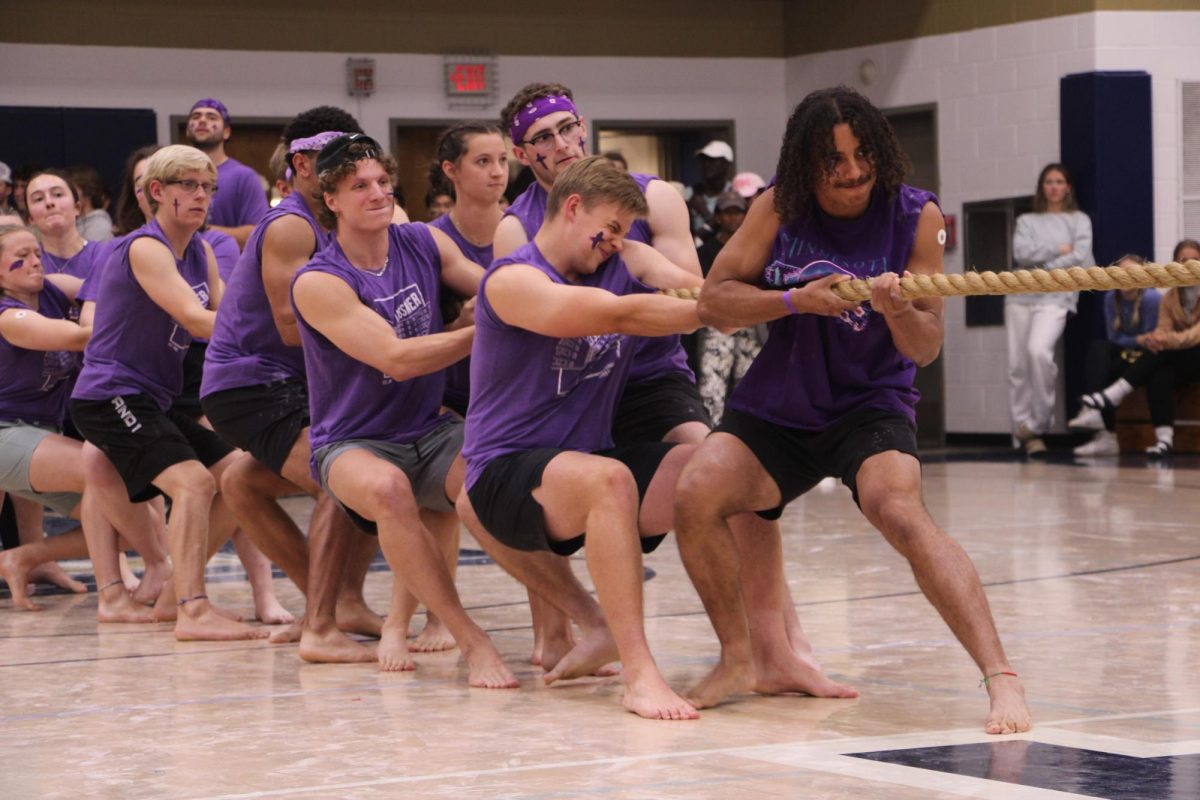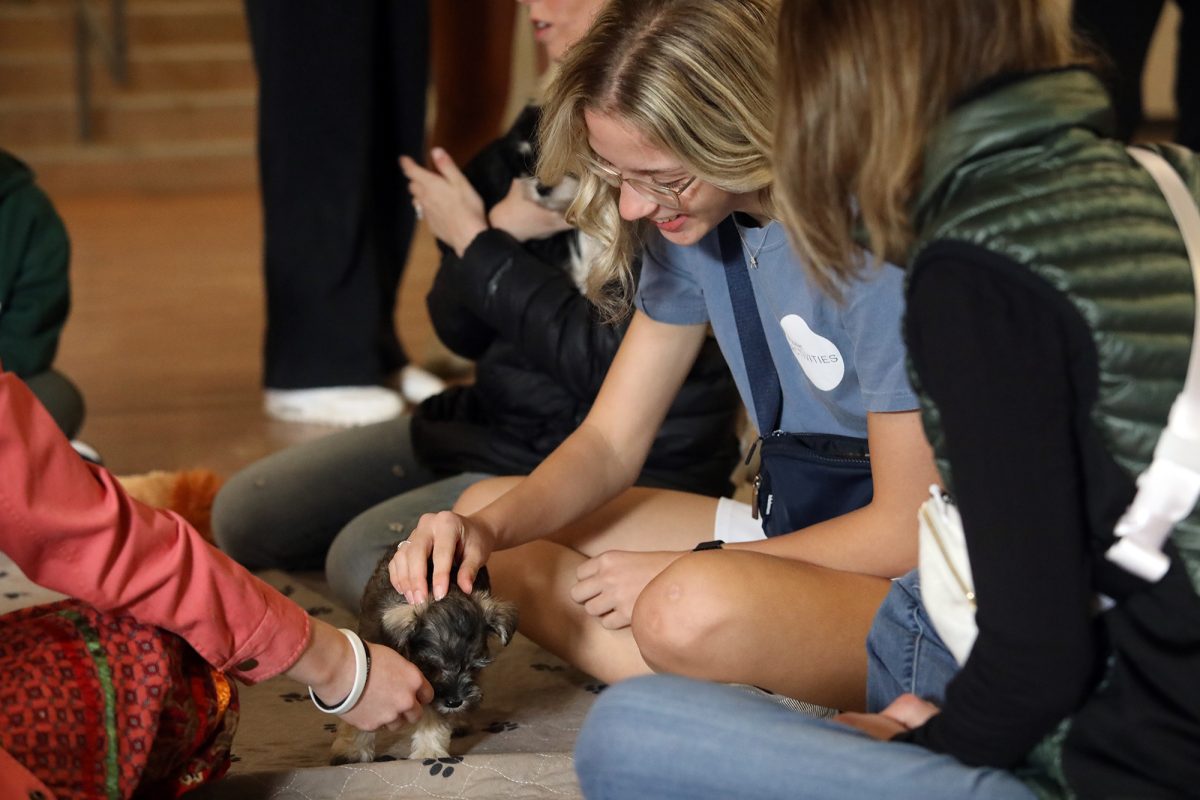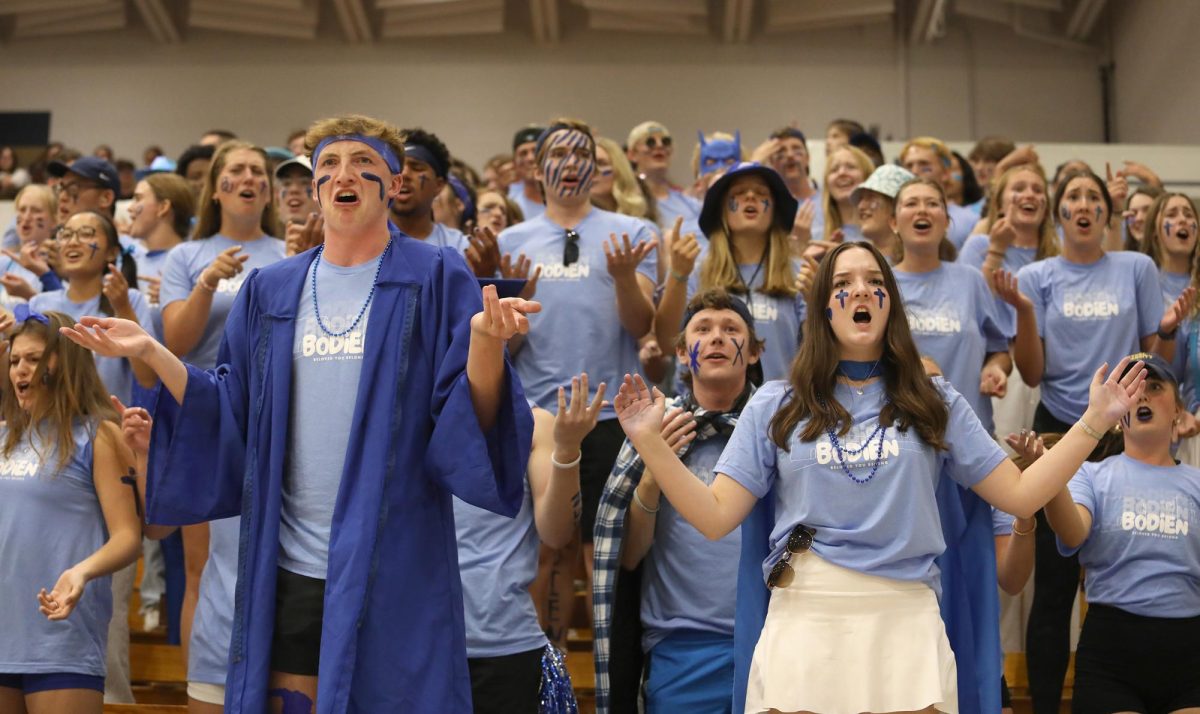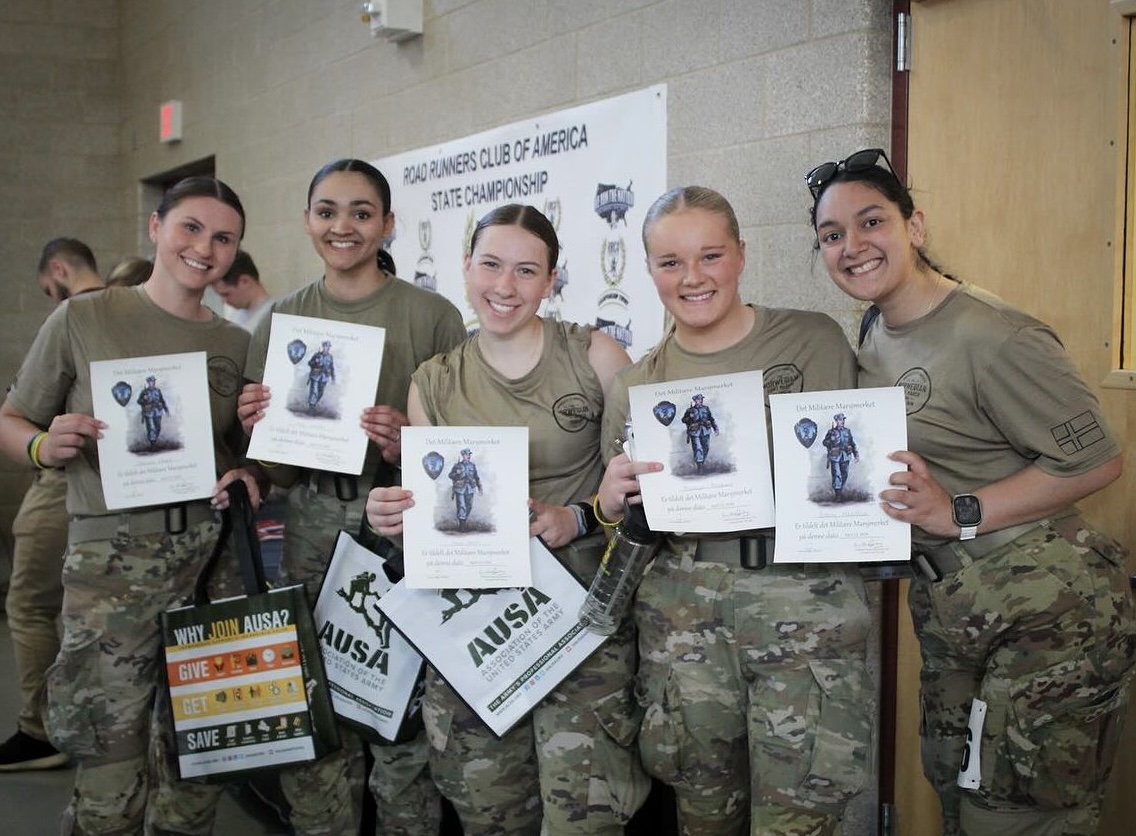For some Bethel students and faculty, President Trump’s executive order on immigration hits close to home.
By Callie Schmidt
Ku Gay Nahpay spent her days working at her neighbor’s house selling snacks. After a day of work, she trudged back to her bamboo house with a day’s earnings of $5 in her pocket.
Now a freshman social work major, Nahpay spent 10 years living in Tham Hin, a Karen refugee camp in Thailand.
Tham Hin was a designated “temporary” settlement by the Thai government. The camp was overcrowded, housing 6750 refugees as of June 2014.
According to the United Nations Refugee Agency, residents are forbidden to go outside the camp, leading to crime and domestic violence in some cases. Thai guards roam around the gates, taking bribes from residents and occasionally raping women who want to leave. Growing up, Nahpay and her friends liked to play a game where they would try to sneak out of the camp to find vegetables.
We didn’t have goals or future goals. We didn’t have anything. We just focused on our day and how we were going to survive it. Ku Gay Nahpay
President Donald Trump issued an executive order Jan. 27, suspending all refugees traveling to the United States for 120 days. The ban also barred Syrian refugees indefinitely and blocked seven predominantly Muslim countries — Iran, Iraq, Libya, Somalia, Sudan, Syria and Yemen — from entering the U.S. for 90 days. Although a federal judge blocked the order Feb. 3, days in between prompted protests, deportations from airports, and heartbreak for families whose loved ones were sent home before stepping foot on American soil. Those people included refugees from Nahpay’s camp.

“The United States must be vigilant during the visa-issuance process to ensure that those approved for admission do not intend to harm Americans and that they have no ties to terrorism,” Trump said in the executive order.
A typical day in the camp for Nahpay included waking up, eating, working at her neighbor’s house and going back to sleep on the floor. They had no furniture. Nahpay’s father worked odd jobs such as helping to carry rice bags to support the family.
“We didn’t have goals or future goals. We didn’t have anything,” Nahpay said. “We just focused on our day and how we were going to survive it.”
Nahpay immigrated to Minnesota in 2007. She finally had a house where she had enough food to eat and clothes to wear.
“That’s hugely impacted my life,” Nahpay said. “I know a lot of Karen people have experiences similar to me, who are also realizing how blessed we are to be able to escape and go to school, compared to the people who are still in Thailand. (They’re) still suffering.”
Nahpay learned of the executive order from a post on Karen Youth Education Center, U.S.A, a Facebook group devoted to helping Karen stay politically educated. She was shocked and questioned whether the order was necessary, but respects Trump while disagreeing with his values.
“I have faith in God. I would rather be praying for him than judging him and pointing fingers at him,” Nahpay said. “But at the same time, I need to understand how it’s effecting my Karen people. Or minorities. Because I know a lot of us still have green cards.”
On Feb. 16 more than 60 students, faculty and alumni gathered in HC241 for a heated discussion triggered by a controversial poster regarding immigration laws. College Democrats flooded the room to join in on the debate. They lined the walls and sat on the floor.
Sam Krueger, president of the Bethel College Republicans, facilitated the discussion. He thinks that reactions to the ban are misguided.
“It’s a temporary barring,” Krueger said, “so I don’t think it’s right to put it like that (as a refugee ban).”
According to Nahpay, she is at Bethel to get her education, but also to benefit her Karen community. She plans to go back to Thailand after graduating and partner with Free Burma Rangers, an organization that reports on human right abuses, recruits Karen people and trains them to provide medical relief.
“I don’t feel comfortable living a comfortable life realizing that other people are suffering. Within my family, we are still suffering,” Nahpay said. “And I feel guilty for being comfortable. But at the same time, I feel peace, because it is a signal that I need to do something.”
On Feb. 13, Bethel University President Jay Barnes, Deb Harless, Executive Vice President and Provost and Ruben Rivera, Chief Diversity Officer issued a Community Statement on Refugees and Immigration,.
Rivera said the executive order was ill-conceived.
“Some students feel unwanted,” Rivera said. “That’s the toxic atmosphere right now around undocumented immigration… and a lot of the dialogue in the larger sphere is very, very dehumanizing.”
The statement described Bethel as a university founded by immigrants and rooted in the Bible, which mandates loving our neighbors as ourselves. The statement also claims our neighbors includes strangers:
“As a university we are committed to caring for students and employees who are affected by changes in immigration laws or policies or practices that discriminate against people based on their ethnicity, religion, or place of birth. We want Bethel to be a caring and safe place for those who are vulnerable to such forms of discrimination.”
Rivera acknowledged some students are feeling confused as to what is going to happen next. To address this, Rivera and other faculty and staff have gotten together with students to eat together, to pray together, to see if Bethel University can become a sanctuary campus and to meet with immigration lawyers in the Twin Cities to ask questions.
“Peoples’ lives are messed up,” Rivera said. “And how it’s going to make America safer, I’m not really sure.”
Rivera claims the reason it seems a lot of white evangelicals seem indifferent on this issue is due to the fact that it won’t affect them. According to Nahpay, this is because they are not taught to care.
“I still see you as a human being above everything. I find no fault in you,” Nahpay said. “But I think if you really understood the Kingdom of God, you would do something.”
She also offered the perspective that, although the executive order delayed Karen people and many others from entering the U.S., the protests have been a positive result.
“It brings us together. It brings our community together, to work together to say that this is wrong,” Nahpay said. “I’m really happy seeing people protesting about women’s rights and about refugees – I find peace in that.”
For years, Rivera has been asking church congregations and Bethel students this question: What do you think about undocumented immigration?
“From the responses of most people, I can’t tell that they’re really Christ-followers,” Rivera said. “What I can tell about them from what they’ve said is likely their social location and almost surely their political party.”
Rivera challenges his students to think about whether they are really Christ-followers on these issues or party followers.
Rivera recognizes that opening America’s borders completely in an era of international terrorism and drug cartels makes no sense, and that the issue of security is a real one.
This is such a human issue, and I couldn’t see any way around it, especially being a Christian. When ever did Christ say your safety is prioritized over loving others? Jesus welcomed in all the people that society stopped ten feet back from. Hannah Johnson
Senior reconciliation studies major Esther Jones is the Director of European Americans in Solidarity – formerly known as Peacemakers – a subgroup of United Cultures of Bethel. Jones attended a protest against Trump’s executive order Jan. 31 at the United States Federal Courthouse in Minneapolis.

The protest, organized by the non-profit organization Anti-War Committee, turned into a march around the courthouse.
“It felt like Jericho, because we were walking around a building,” Jones said. “I was really encouraged to see so many students show up, and to see so many white students show up.”
The roads around the courthouse were already blocked off, and police cars were already there expecting the protesters. But the police officers and security guards stood at a distance, watching and observing, while some even chanted alongside the protesters.
Freshman elementary education major Hannah Johnson also protested at the courthouse.
She felt nervous because she had never attended a protest before.
“This is such a human issue, and I couldn’t see any way around it, especially being a Christian,” Johnson said. “When ever did Christ say your safety is prioritized over loving others? Jesus welcomed in all the people that society stopped ten feet back from.”
According to Johnson, it made her think about how her life demonstrates her beliefs, and if her actions match up with her words.
“We are all in the process of humanizing the other until there is no other,” Rivera said. “That’s when Christianity can change the world.”

Additional reporting by Maddie DeBilzan.








![Senior Bethel receiver Micah Niewald sheds a would-be tackler on his way to a touchdown in the Royals’ 73-8 win over Augsburg Saturday. Niewald sped his way to two touchdowns in the win, tallying 62 yards after the catch between the two scores. “Knowing I can outrun the guy that’s chasing me is a big thing,” Niewald said. “That’s going back to [strength and conditioning] Coach Meyer and everything we do in the summer and off-season.” | Photo by Carl Schumland, Bethel Athletics](https://thebuclarion.com/wp-content/uploads/2024/10/3J9A1632-1200x800.jpg)











